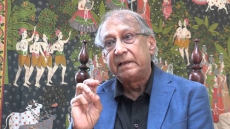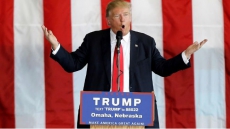Amid escalating tensions, Pakistan continued to strike a tough posture against India, with top Foreign Affairs Adviser Sartaj Aziz saying that there can be no expectations of any breakthrough in ties with India during the tenure of Indian Prime Minister Narendra Modi.
In an interview to a TV channel, Aziz on Friday said Pakistan had been resisting India's "hegemonistic attitude" in the region and calling for the promotion of bilateral ties on an equal basis, Pakistan Today reported.
He said the joint session of the Pakistani parliament had unanimously adopted a resolution that encompassed all issues including the "condemnation of brutalities in Kashmir, ceasefire violations at Line of Control by India, negation of Indian view of Kashmir as its integral part, condemnation of Indian threat to revoke Indus Waters Treaty and Indian intervention in Balochistan".
Aziz said the parliamentary resolution would be circulated across Pakistan's missions, media and think tanks across the world. He said during interactions at various platforms across the globe the majority view was that dialogue should resume between the two countries.
To a question on the Indian Home Minister saying that the India-Pakistan border would be sealed, Aziz said there was no harm in sealing the border as planned by India if the points of public movement and trade were maintained.
Aziz also said that India cannot succeed in diverting the world attention from the Kashmir issue through the September 18 "Uri-like self staged incidents".
His remarks came as Pakistan's Ambassador to the United Nations Maleeha Lodhi told the world body that non-implementation of the Kashmir resolutions is the "most persistent failure" of the UN.
Addressing the General Assembly's Special Political and Decolonization Committee, Lodhi said on Friday that for over six decades the UN Security Council has failed to implement resolutions promising a plebiscite to allow the Kashmiri people to determine their destiny.
"This is the most persistent failure of the United Nations," Lodhi said.

Lodhi also said that Jammu and Kashmir "never was and can never be" an integral part of India. "It is disputed territory, the final status of which has yet to be determined in accordance with several resolutions of the UN Security Council," she said.
Targeting India, Lodhi said: "Generation after generation of Kashmiris has only seen broken promises and brutal oppression."
"Today the Kashmiri people have risen again in unison against an occupation," Pakistan Today quoted Lodhi as saying.
She termed the current uprising in the Kashmir valley, in which 90 people have been killed since July 9, as "the worst form of state terrorism, a war crime, which India has perpetrated by its illegal occupation of Jammu and Kashmir for decades".
In keeping with Islamabad's attempt to bring global focus on Kashmir, Pakistan Prime Minister's special envoy on Jammu and Kashmir was in the US where he presented a "dossier containing evidence of the atrocities carried out by Indian forces in occupied Kashmir" to Special Assistant to President Barack Obama, Peter Lavoy on Friday.
Mushahid Hussain Syed, targetting the US, said that Pakistan has observed a "change" in the Washington's diplomatic policy, marked by its closer ties with India -- which is the reason for Pakistan's burgeoning ties with Russia.
"We (Pakistan) are observing a change in the US diplomatic policy."
Hussain said every action has a reaction, and Pakistan felt the need to develop close ties with Russia after President Barack Obama's two visits to India.
"This was the start of a new chapter in Pakistan-Russia ties," Hussain said, adding that Moscow is in favour of building a working relationship with countries of South Asia region, Dawn reported.

Accusing Obama of changing the policy for political gains, Hussain said the US State Department had refused to give visa to then Gujarat Chief Minister Narendra Modi in 2006, but it took a U-turn after Modi was elected as the Prime Minister.
"This U-turn of US policy can be traced back to the time of Bush administration, when the US-India nuclear deal was signed which was against the law of non-proliferation of nuclear weapons," said Hussain, at a programme organised by the think tank Atlantic Council in Washington.
He also asked for a probe into the September 18 terror attack on an Indian army camp in Uri, Jammu and Kashmir.
"UN military observer group for India and Pakistan should investigate the attack. Crossing the Line of Control to attack any target in India is not possible for any militant," he said.
He said that India should share with Pakistan if it has any evidence or intelligence regarding the attack, which left 19 Indian soldiers dead. India has blamed the attack on Pakistan based Jaish-e-Mohammad militant group.
The tough Pakistan stance came as India said that firing by the Pakistani Army on Saturday injured one of its soldiers on the Line of Control (LoC) in Poonch district of Jammu and Kashmir.

The Indian soldier was injured in unprovoked shelling and firing by the Pakistani side in Mendhar sector of Jammu region, said Indian authorities.




